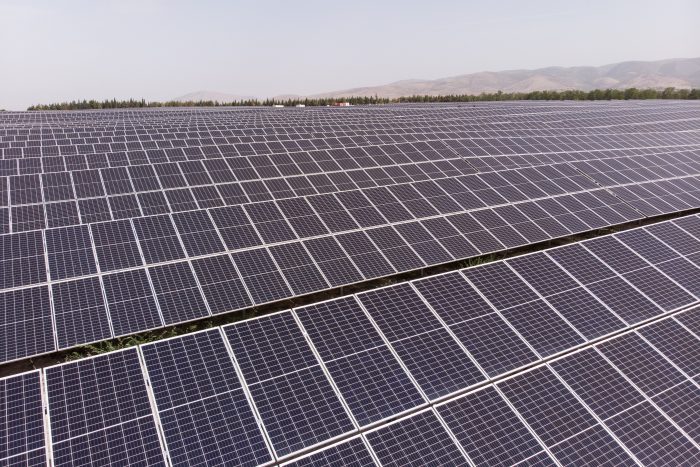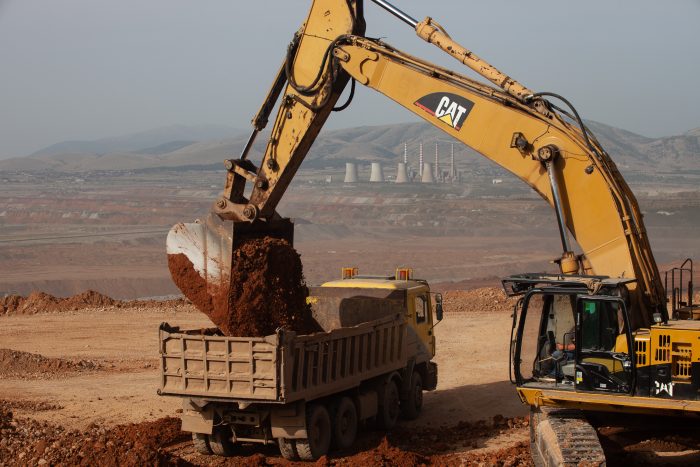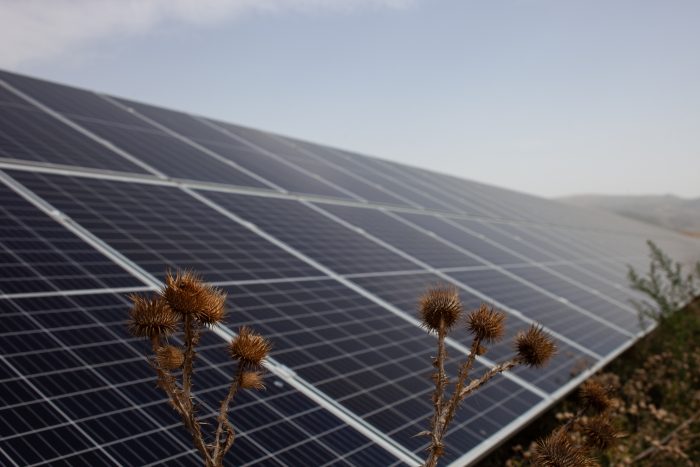08 April 2022
A question of will: New IPCC report shows we have the tools to avoid climate chaos
Author: Michael Buchsbaum, Communications Officer at Europe Beyond Coal
Since Russia’s late February invasion of Ukraine, though much of the world’s attention has been gripped by the bravery of its defenders and the suffering of its civilians, the United Nations’ Intergovernmental Panel on Climate Change (IPCC) has also released two sweeping assessments thoroughly detailing the perilous state of our planet’s health.
The most recent report released in early April, entitled “Mitigation of Climate Change,” finds that if humanity continues to rely on planned and existing fossil fuel infrastructure, then we are set to face a dangerous three degree temperature rise by mid-century.

However the authors of this almost 3,000 page assessment also found that our current emissions cutting actions are indeed having a positive impact. Even better, they highlight that the tools we need to keep us under 1.5C in warming, including new wind and solar energy systems, are readily available and getting cheaper by the day.
Nevertheless, a massive rollout in ever more powerful and efficient renewables will not be enough. Key to our remaining pathways towards successful climate action is the closure of all existing coal-fired power plants in Europe and throughout all OECD nations by 2030 while calling a halt to any planned additional coal and fossil gas infrastructure. Followed by the closure of nearly all coal-fired plants worldwide by 2040.
What distinguishes this year’s two assessments from each other is that while February’s Adaptation report essentially attempted to break down complex physics – this most recent IPCC publication reviews the various choices that society can still take, and how each will likely affect the trajectory of climate change.
“Climate activists are sometimes depicted as dangerous radicals, but the truly dangerous radicals are the countries that are increasing the production of fossil fuels,” said UN secretary-general António Guterres in response to the April report.
When evaluating this entire recent cycle of IPCC data against the backdrop of the on-going war in Ukraine, it has never been more clear that we urgently need to stop burning coal and all fossil fuels.
In that sense, the latest UN climate report offers the positive news that curbing global warming is neither a hopeless nor an impossible task. Indeed, the scientific and economic evidence the authors review is now overwhelmingly clear: this is no longer a question of technologic potential but rather one of political will.

While February’s “Adaptation” report warned that our current development trends “are leading away from, rather than toward, sustainable development,” the call to action in April’s assessment is even more emphatic.
Detailing “ways of reducing emissions,” this third and final round of scientific evaluation finds that “It’s now or never if we want to limit global warming to 1.5C,” said Professor Jim Skea, co-chair of the working group behind this release.
“Without immediate and deep emissions reductions across all sectors, it will be impossible.”
However, “warming cannot be limited to 2C or 1.5C without rapid and deep reductions in energy system CO2 and greenhouse gas emissions,” states the IPCC. To avoid the worst effects of worsening climate change, science demands that we reduce global coal use by 75 percent by 2030 and 96 percent by 2040 while working to decarbonise all sectors.
Though phasing out all coal power in Europe and OECD nations no later than 2030 as well as closing nearly all coal-fired plants by 2040 will help, it is not enough. Regardless of on-going construction, the IPCC states that no new coal plants can be built or come online, as this would inevitably lock in more CO2 emissions.
However, even though the largest share of greenhouse gas pollution relates to the generation of electricity and heat, to avoid emissions elsewhere as demand increases, the IPCC writes that we also must “increase electrification of buildings, transport and industry”.

“For the first time we’re seeing evidence of real, sustained decreases in greenhouse gas emissions from some countries,” said the report’s lead author, Dr Sarah Burch.
“Options now exist across all sectors and regions that can cut our emissions by at least half by 2030,” she posted on Twitter.
As we turn away from coal and fossil gas-fired electricity and embark on a rapid expansion of wind and solar energy capacities, we must also quickly expand our use of heat pumps and other demand side technologies.
Thankfully, these required tools have dramatically fallen in price. Though European countries continue to actively choose to burn fossil fuels, since 2010, the average global cost of solar and wind energy as well as lithium ion batteries “has decreased by 85%, 55% and 85%, respectively.”
In fact, the cost of PV solar modules has dropped by a factor of 10,000 since they were first commercialised in 1957 – and prices in 2020 were “below where even the most optimistic experts expected they would be in 2030”.
This in turn has enabled wind and solar to power over ten percent of the global economy according to a recent analysis from climate think tank Ember.
As these renewable energy systems become the fastest growing sources of electricity worldwide, in much of the world, the IPCC finds that solar power is now cheaper than electricity from fossil fuels. Similarly, electricity from onshore wind is cheaper than from fossil fuels “in a growing number of markets”.
To ensure a just transition as the world shifts to clean, fossil-free, renewables, fossil fuel energy workers can and are increasingly being retrained. As our recent report on the solar generation potential of mining regions in Turkey shows, regions that today depend on coal can tomorrow be transformed into clean renewable energy hubs.
Even before Russia’s invasion of Ukraine, the economics were stacked against the burning of fossil fuels. As Leo Roberts, Research Manager for E3G’s Coal Transition team pointed out in a recent Twitter Space conversation, this IPCC report “just reinforces that getting off fossil fuels, particularly coal, is the only reaction route forward from an economic, energy security and climate perspective.”
While the hundreds of volunteer scientist-authors collectively implore that we must quickly take comprehensive and rapid climate protection measures, they also warn that with each burnt wagonload of coal, our window to prevent the worst impacts of climate change closes a little more.
We can no longer afford any more hesitation. The vast amount of accumulated evidence within these comprehensive reports proves that now is the time for brave decisions from our leaders.
